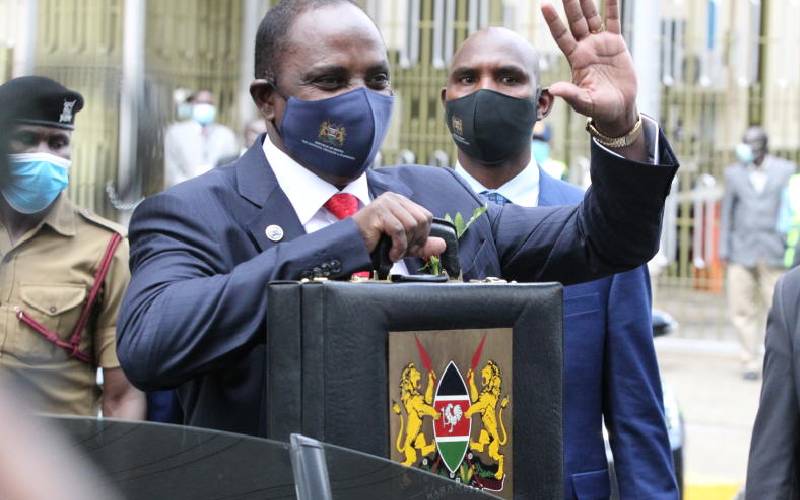×
The Standard e-Paper
Kenya’s Boldest Voice

The National Treasury and Planning CS Ukur Yattani at Treasury building before he presented the 2021/2022 budget at Parliament on June 10, 2021.[Jonah Onyango, Standard]
The government will borrow close to Sh1 trillion from local investors in the next 12 months to fund its expansive Sh3.66 trillion budget. It will also need to repay domestic loans maturing during this period.